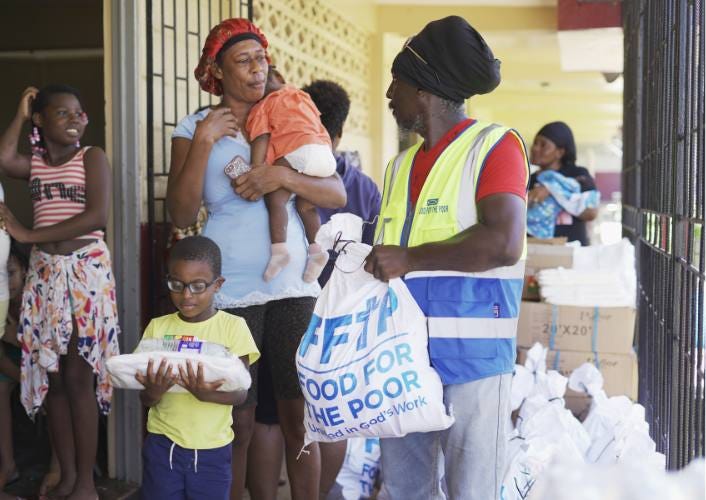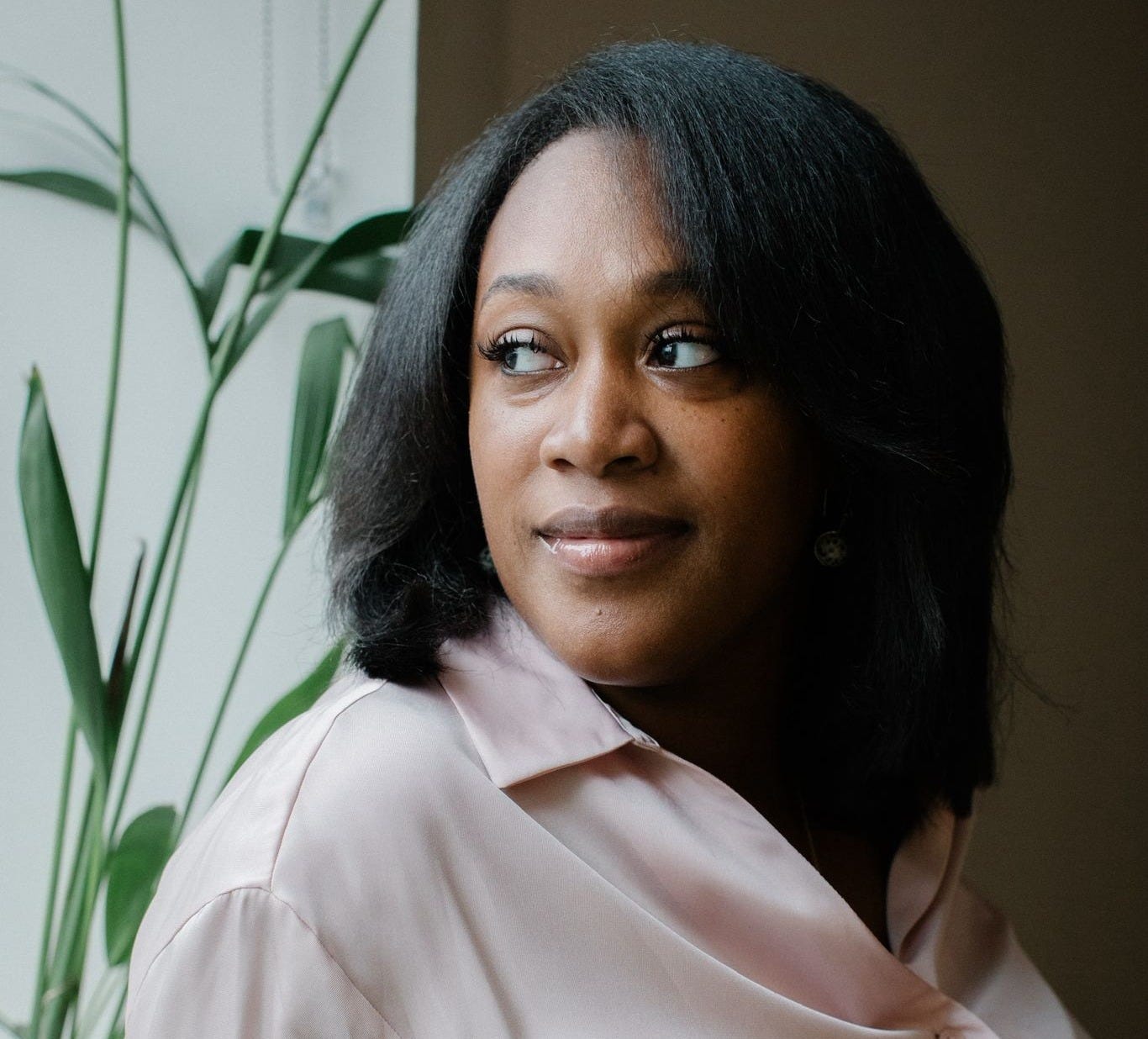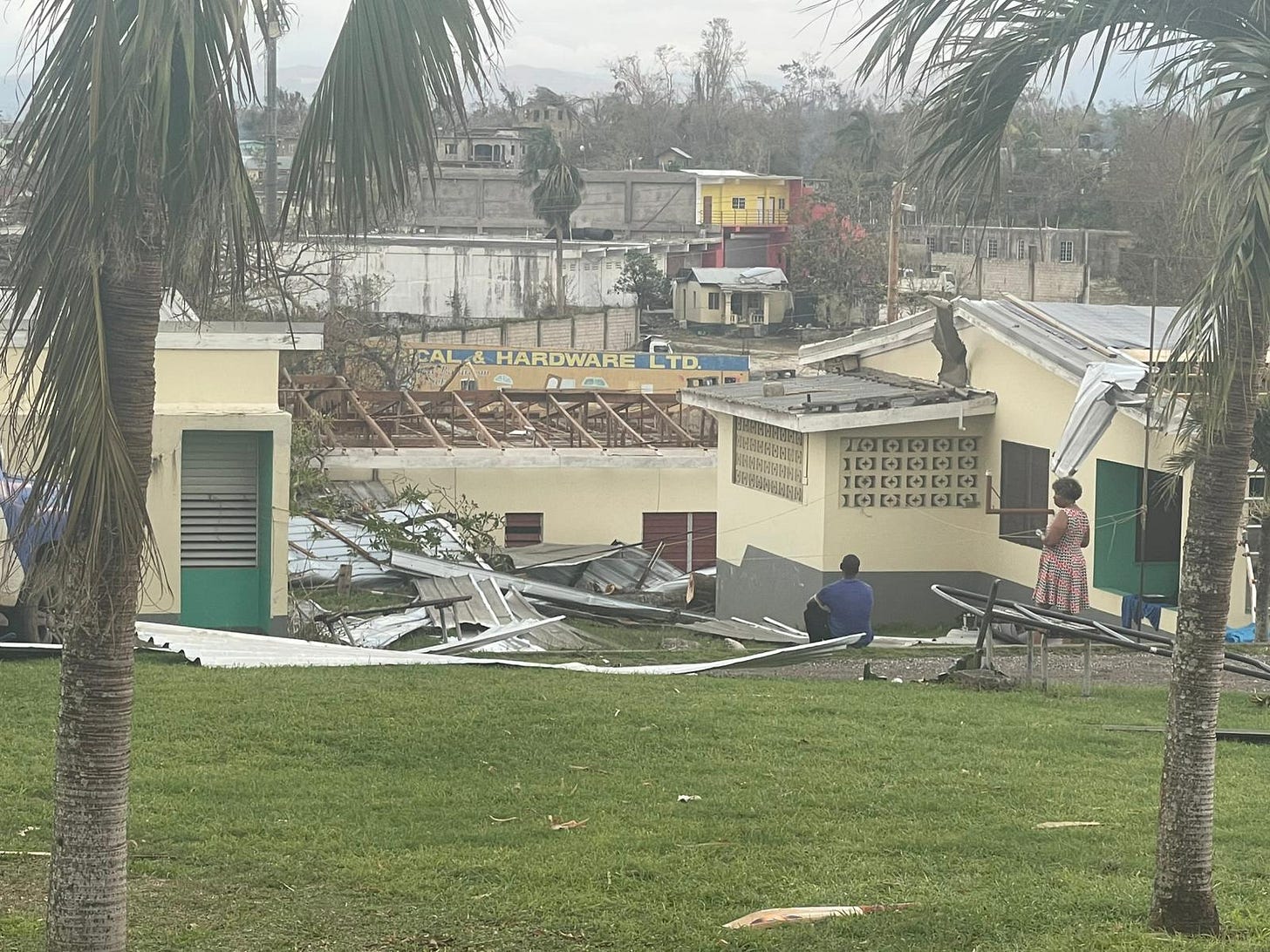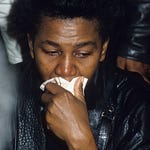In the wake of Hurricane Melissa, Jamaica is facing a quieter emergency - one that is not making the headlines.
Beyond the wrecked roads and shattered homes, thousands of mothers and babies are navigating the most vulnerable months of life without clean water, electricity or basic care.
Leah Lewin, co-CEO of the White Ribbon Alliance UK (WRA UK), has been on the ground coordinating emergency relief for families who have lost everything.
Her team is working with local and international partners - including logistical support from the UK, US and Barbados - to deliver trauma-informed, dignity-centred care across some of the hardest-hit parishes, including Manchester, St Elizabeth and Westmoreland.
“The hardest part of the aftermath is the destruction that nobody really talks about and the upheaval to everyone’s lives,” Leah told Black Current News.

“Once the trend dies down and there’s a new topic to focus on for other people, the residents are still trying to rebuild their lives.
“Simple things like not being able to purchase goods because they don’t have any cash available, cash machines not working, card machines not working, the price hikes in goods, not being able to work - for many people, they can’t go to work if they’re self-employed, run their own businesses, their customers aren’t coming to them which means they have no income, and there’s no support available for people”.
Hurricane Melissa struck Jamaica on Tuesday, flattening homes, cutting off power, while leaving thousands homeless and at least 28 dead.
Across the island, maternity wards have been forced to send patients home and routine antenatal care has collapsed.
“This is why we are mobilising teams to provide that clinical support,” Leah, a perinatal specialist who’s usually based in Britain, said.
Leah further described how healthcare workers are exhausted, but “there’s such a desperate need at the moment”.
She said the impact on mothers and babies is “hard to describe”.
“You can’t expect someone with hungry children to just ‘hold on’ for another week. The appeals are urgent because survival is urgent,” she said.
“It’s unimaginable - giving birth with no running water, no electricity and nowhere safe to recover.”
To meet that need, WRA UK has rallied a volunteer response team of between 30 and 40 people.
Working in rotation, the charity will staff a network of pop-up triage and antenatal clinics.
Each triage team will consist of midwives, obstetricians, paediatric nurses, sonographers, lactation consultants, doulas, therapists and mental-health specialists.
“We’re setting up where it’s safe, so people can reach us,” Leah explained.
“For those who can’t travel, our team leads will deliver care packages directly. It’s about restoring dignity and access to the essentials”.
The response effort, however, faces growing security challenges. With food, fuel and cash in short supply, reports of robbery and theft have already begun surfacing. Leah says her teams are taking precautions.
“People are frightened - some are starting to loot, and violence may be on the horizon,” she warned. “We’re doing everything possible to keep our volunteers and the people we serve safe”.
Each package distributed through the clinics includes birth kits, hygiene items, menstrual products and baby supplies, aligned with global humanitarian and sexual and reproductive-health standards.
“Every life is equally valuable,” Leah said.
“Our focus is on women, girls and perinatal families because there’s an increased vulnerability where they are susceptible to injury and illness, where, when you throw in a natural disaster, it’s almost impossible to try and navigate what’s already a devastating situation”.
The numbers highlight why this work is urgent.
Jamaica records around 52,000 births each year and an estimated 91,000 people are pregnant or within a year of giving birth at any given time. When disasters strike, these families are among the first to suffer and the last to receive help.
Leah is calling on the Jamaican diaspora to stay engaged long after the headlines fade.
“I’d like to see Jamaicans in the UK keep the same energy once the stories die down and it’s not trending on social media,” she urged.
“This isn’t going away when the next news cycle starts. Imagine your home - your safe place - being washed away and having to rebuild while the world moves on.”
Leah’s work with WRA UK is both a lifeline and a call to conscience.
The charity is seeking donations to support emergency maternity care and safe births across Jamaica. The packages include:
£5 provides soap and menstrual supplies for a woman or girl
£10 provides a small hygiene and safety pack
£25 funds a full dignity and hygiene kit
£50 supports a safe birth and newborn kit
£75 helps a mother and baby recover after the storm
Each kit is designed to meet key needs with items including wipes, nappies, soap, mosquito nets, fresh underwear, supplements, hygiene items, reusable pads, menstrual cups, washcloths, condoms, emergency contraception information, whistles, solar torches and lockable pouches.
Those willing to help can donate here: justgiving.com/campaign/wraforjamaica
This story is part of Black Current News’ ongoing coverage of recovery and resilience after Hurricane Melissa.
Read our full “How You Can Help” roundup for verified fundraisers, donation drives and community efforts supporting families across Jamaica and the wider Caribbean: blackcurrentnews.co.uk/p/hurricane-melissa-how-can-we-help
Every share and act of solidarity counts.













